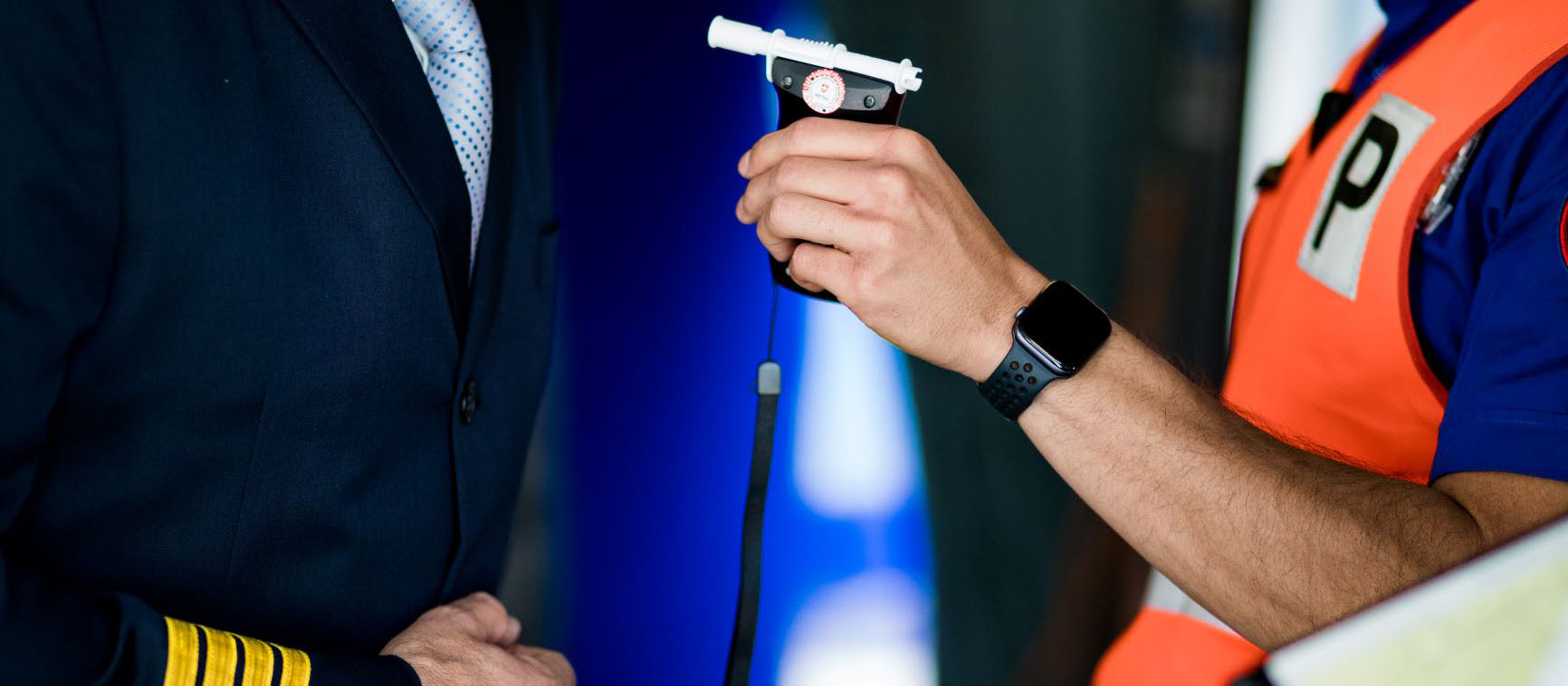Since sommer 2022, flight and cabin crew members in Switzerland are subject to random alcohol tests as part of ramp inspections. These tests are carried out without cause and without reasonable suspicion.

In the immediate aftermath to the crash of a Germanwings A320 aircraft in 2015, a working group was set up by the European Commission primarily to investigate the main factors that led to the accident. The aim of this Germanwings Task Force was thus to identify possible weak points and to develop suitable counter-measures, particularly with regard to the physical and mental fitness of cockpit and cabin crew. As a result of the investigations, a range of statutory bases have been created at European level pertaining to alcohol testing conducted on cockpit and cabin crew.
On the basis of Commission Regulation (EU) No 965/2012 of 5 October 2012, as revised by Regulation (EU) 2018/1042, and the corresponding implementing provisions, Switzerland adopted these requirements as part of the revision of the Federal Act on Civil Aviation (AviA) and ensures implementation from sommer 2022 with operational support from the relevant police services. The main responsibility thus lies with the FOCA, even though alcohol testing is in practice conducted by the police.
When is an alcohol test carried out?
An alcohol test is usually carried out as part of a ramp inspection and in cooperation with the local police, if possible. Isolated alcohol testing by the FOCA is not planned for the time being. Alcohol tests are basically carried out in the same way as for road traffic. However, unlike in road traffic, a confirmed positive measurement has drastic consequences for the flight crew member concerned without exception. Alcohol tests are carried out in such a way as to ensure the greatest possible discretion.
How is an alcohol test carried out?
The test is basically conducted in accordance with AMC1 ARO.RAMP.106 (b)(1)(2) and (c), and is as follows:
• Notification of test
• Test 1 (initial test)
• Result
If positive:
• Test 2 (confirmatory)
• Result 2
The flight crew, and first and foremost the captain of the flight crew, is informed immediately after boarding the aircraft about the planned alcohol tests and who is to be tested. In most cases, the entire crew is tested; exceptions can be made only in justified cases (short downtime, passengers in the aircraft, etc.). If the checks take place outside the aircraft, the flight crew members are tested without the captain being informed in advance.
If a test is confirmed positive, in accordance with AMC1 ARO.RAMP.106 (d) the FOCA informs the crew member concerned, the authority responsible for the operator and the authority responsible for the crew member concerned of the result. If different authorities are responsible for the pilot licence or the medical certificate, they are informed separately. Furthermore, the inspectors ensure that any operational measures necessary are conducted. Finally, the crew member who tested positive is suspended from further activities. Any further administrative measures are conducted by the public prosecutor's office or the Office of the Attorney General of Switzerland.
Which type of alcohol test is used?
Breath alcohol analysers (breathalysers) are used in the alcohol checks. The police forces decide which breathalysers to use, including their functionality and calibration. Devices approved by the courts, for which approval by the Swiss Federal Institute of Metrology (METAS) is required, are mainly used. The legally prescribed maintenance and calibration intervals in accordance with the FDJP Ordinance on Breath Alcohol Measuring Instruments (BAMDO; SR 941.210.4), in particular Article 6, must be observed and corresponding records kept.
What happens if someone refuses to take an alcohol test?
If someone refuses to take a test, this is regarded as a refusal to grant access in accordance with AMC1 ARO.RAMP.106 Alcohol testing (e) or ORO.GEN.140 Access for EU operators or TCO.115 Access (EU No 452/2014) for non-EU operators, and the flight or flight preparations may not be continued.
Further information





